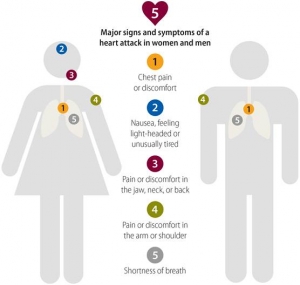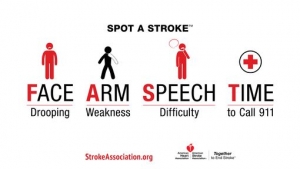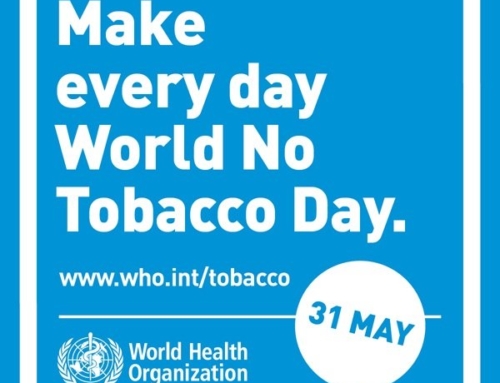It kills one in three women in the United States every year, but many consider it only a man’s disease. Heart disease kills more people in the U.S. every year than all forms of cancer combined. February is American Heart Month, a time for women to take control of their cardiovascular health.
Go Red For Women is a program developed by the American Heart Association. The goals are to encourage women to take control of their heart health and to bring attention to cardiovascular disease in women. National Wear Red Day® is a day for everyone to wear red clothes or accessories to promote the cause of women’s heart health.
Nine out of ten women have at least one risk factor for heart disease or stroke. In other words, of all the women you know in your life, 90% of them are vulnerable to heart disease or stroke. There are some risk factors that increase your risk of heart disease or stroke that can be controlled. This includes excess weight, high blood pressure, smoking, diabetes, and cholesterol levels.
However, some risk factors are not preventable, and include age, gender, race, and ethnic background. For example, if one of your parents, grandparents or siblings has suffered a heart attack or stroke, your risk is higher, too.

CDC.gov
Signs of a heart attack in women differ from those in men. The most common symptom of a heart attack in either gender is chest pain or discomfort. Women may also feel shortness of breath, back pain, jaw pain, nausea, or vomiting.

The signs of a stroke in women include sudden numbness or weakness of the face, arm, or leg, especially on one side of the body; sudden confusion, trouble speaking or understanding; sudden trouble seeing or blurred vision in one or both eyes; sudden trouble walking, dizziness, loss of balance or coordination; and/or sudden severe headache with no known cause. Learn to recognize the symptoms of an impending stroke, and teach your friends and family too.
- Take action. The best ways to protect your heart are:
- Get active and stay active as you age.
- Eat healthy foods.
- Talk to your doctor about your heart health and risk factors.
- Manage high blood pressure.
- Maintain a healthy weight.
- Control cholesterol and blood sugar.
- Stop smoking and drink only in moderation.
Get active.
We all know we need to exercise to stay healthy, but how do we fit it into our busy schedules? Here are a few tips to sneak in some extra steps in fun and effortless ways:
- Walk with your kids or your dog around the block after school or after dinner.
- If the weather outside is frightful (hot, cold, wet!), try walking in the mall or even a large store.
- Park further away from the door to your office, store, or bus stop, and walk the extra distance.
- Use the stairs, not the elevator. It’s good for you and the environment too.
- Grab your honey and go out dancing. Or grab your kid and dance to the songs in their favorite movie.
- Find a way to exercise while you watch TV – walk or jog in place, or use a treadmill if you have one.
- Join a gym or find a class. Exercising with others may help motivate you.
- Going to the beach? Walk on the beach or boardwalk. Take a swim. Throw a frisbee.
Eat healthy foods.
A healthy diet is a gift you can give yourself every day. Eat a variety of fruits and vegetables. Choose whole grains. Eat less red meat and more fish. Select fat-free or low-fat dairy products. Limit salt and fat. Try these delicious and heart-healthy recipes from the American Heart Association:
Talk to your healthcare provider.
Women can be proactive about their heart health. Make an appointment with your primary care doctor for a Well-Woman Checkup. Bring a list of questions or symptoms, a detailed family history of heart disease, and a list of your medications. Be sure to discuss your blood pressure, cholesterol, and other lifestyle-related risk factors.
It doesn’t need to be February 2nd to support women’s heart health!
Resources:
About the Author: Sherri Cook
 |
Sherri L. Cook is a fourth-year Health Education & Behavior student in a combined degree program at the University of Florida College of Health and Human Performance. She has many years of experience as a women’s health educator and currently works as an intern at the UF Pediatric Pulmonary Center. |







